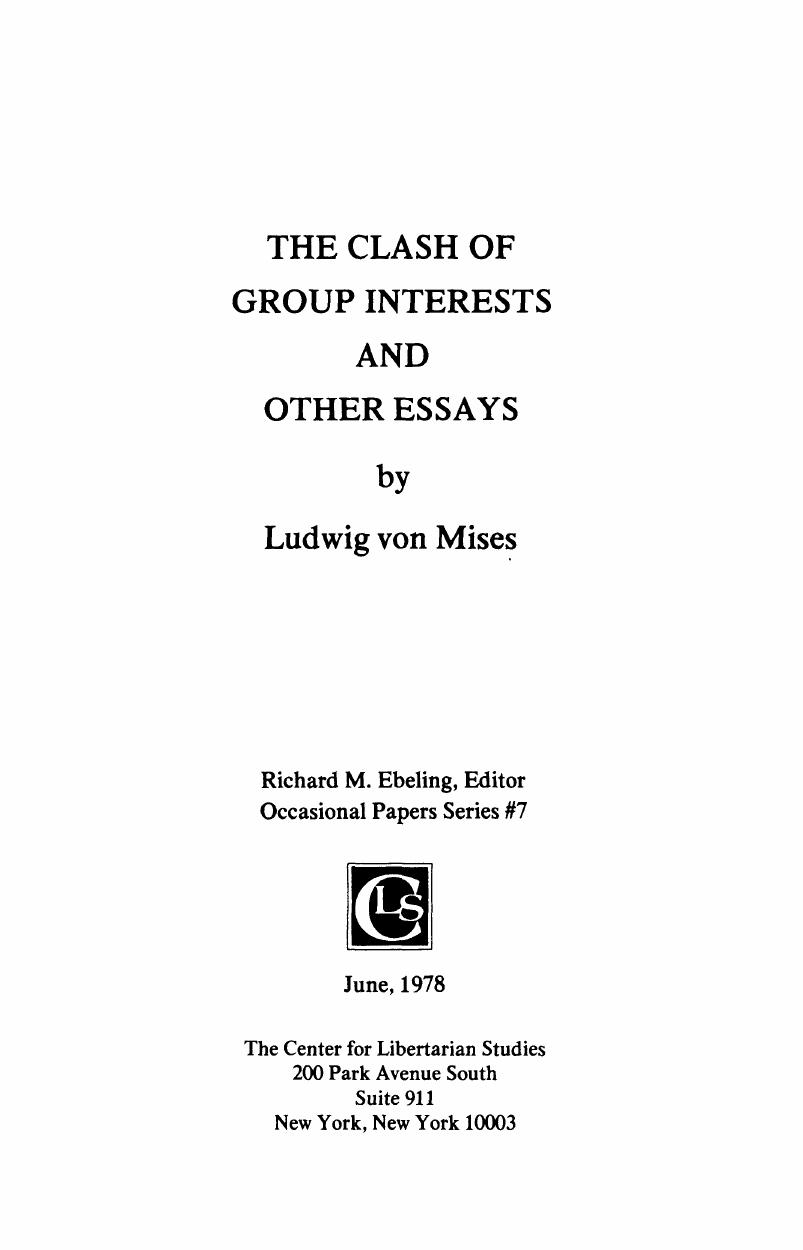The Clash of Group Interests by Ludwig von Mises

Author:Ludwig von Mises [Mises, Ludwig von]
Language: eng
Format: epub, pdf
ISBN: 978-1-61016-117-6
Publisher: Ludwig von Mises Institute
Published: 2011-03-24T16:00:00+00:00
ON EQUALITY AND INEQUALITY
I
THE DOCTRINE OF NATURAL LAW that inspired the eighteenth century declarations of the rights of man did not imply the obviously fallacious proposition that all men are biologically equal. It proclaimed that all men are born equal in rights and that this equality cannot be abrogated by any man-made law, that it is inalienable or, more precisely, imprescriptible. Only the deadly foes of individual liberty and self-determination, the champions of totalitarianism, interpreted the principle of equality before the law as derived from an alleged psychical and physiological equality of all men. The French declaration of the rights of the man and the citizen of November 3, 1789, had pronounced that all men are born and remain equal in rights. But, on the eve of the inauguration of the regime of terror, the new declaration that preceded the Constitution of June 24, 1793, proclaimed that all men are equal “par la nature.” From then on this thesis, although manifestly contradicting biological experience, remained one of the dogmas of “leftism.” Thus we read in the Encyclopaedia of the Social Sciences that “at birth human infants, regardless of their heredity, are as equal as Fords.”1
However, the fact that men are born unequal in regard to physical and mental capacities cannot be argued away. Some surpass their fellow men in health and vigor, in brain and aptitudes, in energy and resolution and are therefore better fitted for the pursuit of earthly affairs than the rest of mankind—a fact that has also been admitted by Marx. He spoke of “the inequality of individual endowment and therefore productive capacity (Leistungsfähigkeit)” as “natural privileges” and of “the unequal individuals (and they would not be different individuals if they were not unequal).”2 In terms of popular psychological teaching we can say that some have the ability to adjust themselves better than others to the conditions of the struggle for survival. We may therefore—without indulging in any judgment of value—distinguish from this point of view between superior men and inferior men.
History shows that from time immemorial superior men took advantage of their superiority by seizing power and subjugating the masses of inferior men. In the status society there is a hierarchy of castes. On the one hand are the lords who have appropriated to themselves all the land and on the other hand their servants, the liegemen, serfs, and slaves, landless and penniless underlings. The inferiors’ duty is to drudge for their masters. The institutions of the society aim at the sole benefit of the ruling minority, the princes, and their retinue, the aristocrats. Such was by and large the state of affairs in all parts of the world before, as both Marxians and conservatives tell us, “the acquisitiveness of the bourgeoisie,” in a process that went on for centuries and is still going on in many parts of the world, undermined the political, social, and economic system of the “good old days.” The market economy—capitalism—radically transformed the economic and political organization of mankind.
Permit me to recapitulate some well-known facts.
Download
The Clash of Group Interests by Ludwig von Mises.pdf
This site does not store any files on its server. We only index and link to content provided by other sites. Please contact the content providers to delete copyright contents if any and email us, we'll remove relevant links or contents immediately.
International Integration of the Brazilian Economy by Elias C. Grivoyannis(111059)
The Radium Girls by Kate Moore(12028)
Turbulence by E. J. Noyes(8049)
Nudge - Improving Decisions about Health, Wealth, and Happiness by Thaler Sunstein(7706)
The Black Swan by Nassim Nicholas Taleb(7129)
Rich Dad Poor Dad by Robert T. Kiyosaki(6632)
Pioneering Portfolio Management by David F. Swensen(6300)
Man-made Catastrophes and Risk Information Concealment by Dmitry Chernov & Didier Sornette(6019)
Zero to One by Peter Thiel(5802)
Secrecy World by Jake Bernstein(4753)
Millionaire: The Philanderer, Gambler, and Duelist Who Invented Modern Finance by Janet Gleeson(4478)
The Age of Surveillance Capitalism by Shoshana Zuboff(4292)
Skin in the Game by Nassim Nicholas Taleb(4248)
The Money Culture by Michael Lewis(4207)
Bullshit Jobs by David Graeber(4190)
Skin in the Game: Hidden Asymmetries in Daily Life by Nassim Nicholas Taleb(4006)
The Dhandho Investor by Mohnish Pabrai(3764)
The Wisdom of Finance by Mihir Desai(3747)
Blockchain Basics by Daniel Drescher(3582)
